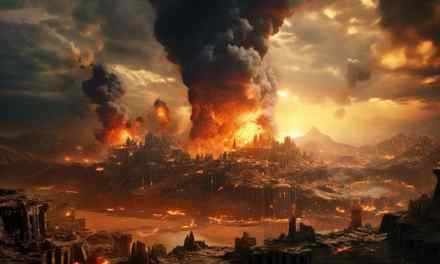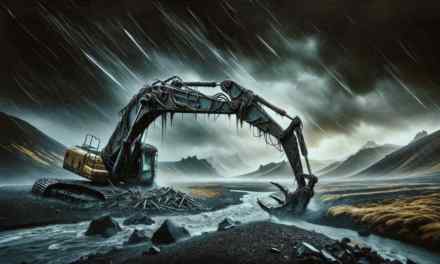Carmichael flew in from New Mexico that morning, and the first thing they told him when he put his little plane down at Burbank was that fires were burning out of control all around the Los Angeles basin. He was needed bad, they told him. It was late October, the height of the brushfire season in Southern California, and a hot, hard, dry wind was blowing out of the desert, and the last time it had rained was the fifth of April. He phoned the district supervisor right away, and the district supervisor told him, “Get your ass out here on the line double fast, Mike.”
“Where do you want me?”
“The worst one’s just above Chatsworth. We’ve got planes loaded and ready to go out of Van Nuys Airport.”
“I need time to pee and to phone my wife. I’ll be in Van Nuys in fifteen, okay?”
He was so tired that he could feel it in his teeth. It was nine in the morning, and he’d been flying since half past four, and it had been rough all the way, getting pushed around by that same fierce wind out of the heart of the continent that was now threatening to fan the flames in L.A. At this moment all he wanted was home and shower and Cindy and bed. But Carmichael didn’t regard fire-fighting work as optional. This time of year, the whole crazy city could go in one big fire storm. There were times he almost wished that it would. He hated this smoggy, tawdry Babylon of a city, its endless tangle of freeways, the strange-looking houses, the filthy air, the thick, choking, glossy foliage everywhere, the drugs, the booze, the divorces, the laziness, the sleaziness, the porno shops and the naked encounter parlors and the massage joints, the weird people wearing their weird clothes and driving their weird cars and cutting their hair in weird ways. There was a cheapness, a trashiness, about everything here, he thought. Even the mansions and the fancy restaurants were that way: hollow, like slick movie sets. He sometimes felt that the trashiness bothered him more than the out-and-out evil. If you kept sight of your own values you could do battle with evil, but trashiness slipped up around you and infiltrated your soul without your even knowing it. He hoped that his sojourn in Los Angeles was not doing that to him. He came from the Valley, and what he meant by the Valley was the great San Joaquin, out behind Bakersfield, and not the little, cluttered San Fernando Valley they had here. But L.A. was Cindy’s city, and Cindy loved L.A. and he loved Cindy, and for Cindy’s sake he had lived here seven years, up in Laurel Canyon amidst the lush, green shrubbery, and for seven Octobers in a row he had gone out to dump chemical retardants on the annual brushfires, to save the Angelenos from their own idiotic carelessness. You had to accept your responsibilities, Carmichael believed.
The phone rang seven times at the home number before he hung up. Then he tried the little studio where Cindy made her jewelry, but she didn’t answer there either, and it was too early to call her at the gallery. That bothered him, not being able to say hello to her right away after his three-day absence and no likely chance for it now for another eight or ten hours. But there was nothing he could do about that.
As soon as he was aloft again he could see the fire not far to the northwest, a greasy black column against the pale sky. And when he stepped from his plane a few minutes later at Van Nuys he felt the blast of sudden heat. The temperature had been in the mid-eighties at Burbank, damned well hot enough for nine in the morning, but here it was over a hundred. He heard the distant roar of flames, the popping and crackling of burning underbrush, the peculiar whistling sound of dry grass catching fire.
The airport looked like a combat center. Planes were coming and going with lunatic frenzy, and they were lunatic planes, too, antiques of every sort, forty and fifty years old and even older, converted B-17 Flying Fortresses and DC-3s and a Douglas Invader and, to Carmichael’s astonishment, a Ford Trimotor from the 1930s that had been hauled, maybe, out of some movie studio’s collection. Some were equipped with tanks that held fire-retardant chemicals, some were water pumpers, some were mappers with infrared and electronic scanning equipment glistening on their snouts. Harried-looking men and women ran back and forth, shouting into CB handsets, supervising the loading process. Carmichael found his way to Operations HQ, which was full of haggard people staring into computer screens. He knew most of them from other years.
One of the dispatchers said, “We’ve got a DC-3 waiting for you. You’ll dump retardants along this arc, from Ybarra Canyon eastward to Horse Flats. The fire’s in the Santa Susana foothills, and so far the wind’s from the east, but if it shifts to northerly, it’s going to take out everything from Chatsworth to Granada Hills and right on down to Ventura Boulevard. And that’s only this fire.”
“How many are there?”
The dispatcher tapped his keyboard. The map of the San Fernando Valley that had been showing disappeared and was replaced by one of the entire Los Angeles basin. Carmichael stared. Three great scarlet streaks indicated fire zones: this one along the Santa Susanas, another nearly as big way off to the east in the grasslands north of the 210 Freeway around Glendora or San Diamas, and a third down in eastern Orange County, back of Anaheim Hills. “Ours is the big one so far,” the dispatcher said. “But these other two are only about forty miles apart, and if they should join up somehow —”
“Yeah,” Carmichael said. A single wall of fire running along the whole eastern rim of the basin, maybe with Santa Ana winds blowing, carrying sparks westward across Pasadena, across downtown L.A., across Hollywood, Beverly Hills, all the way to the coast, to Venice, Santa Monica, Malibu. He shivered. Laurel Canyon would go. Everything would go. Worse than Sodom and Gomorrah, worse than the fall of Nineveh. Nothing but ashes for hundreds of miles. “Everybody scared silly of Russian nukes, and a carload of dumb kids tossing cigarettes can do the job just as easily,” he said.
“But this wasn’t cigarettes, Mike,” the dispatcher said.
“No? What then, arson?”
“You haven’t heard.”
“I’ve been in New Mexico for the last three days.”
“You’re the only one in the world who hasn’t heard, then.”
“For Christ’s sake, heard what?”
“About the E.T.’s,” said the dispatcher wearily. “They started the fires. Three spaceships landing at six this morning in three different corners of the L.A. basin. The heat of their engines ignited the dry grass.”
Carmichael did not smile. “You’ve got one weird sense of humor, man.”
The dispatcher said, “I’m not joking.”
“Spaceships? From another world?”
“With critters fifteen feet high onboard,” the dispatcher at the next computer said. “They’re walking around on the freeways right this minute. Fifteen feet high, Mike.”
“Men from Mars?”
“Nobody knows where the hell they came from.”
“Jesus Christ, God,” Carmichael said.
Wild updrafts from the blaze buffeted the plane as he took it aloft and gave him a few bad moments. But he moved easily and automatically to gain control, pulling the moves out of the underground territories of his nervous system. It was essential, he believed, to have the moves in your fingers, your shoulders, your thighs, rather than in the conscious realms of your brain. Consciousness could get you a long way, but ultimately you had to work out of the underground territories or you were dead.
He felt the plane responding and managed a grin. DC-3s were tough old birds. He loved flying them, though the youngest of them had been manufactured before he was born. He loved flying anything. Flying wasn’t what Carmichael did for a living — he didn’t actually do anything for a living, not anymore — but flying was what he did. There were months when he spent more time in the air than on the ground, or so it seemed to him, because the hours he spent on the ground often slid by unnoticed, while time in the air was intensified, magnified.
He swung south over Encino and Tarzana before heading up across Canoga Park and Chatsworth into the fire zone. A fine haze of ash masked the sun. Looking down, he could see the tiny houses, the tiny swimming pools, the tiny people scurrying about, desperately trying to hose down their roofs before the flames arrived. So many houses, so many people, filling every inch of space between the sea and the desert, and now it was all in jeopardy. The southbound lanes of Topanga Canyon Boulevard were as jammed with cars, here in midmorning, as the Hollywood Freeway at rush hour. Where were they all going? Away from the fire, yes. Toward the coast, it seemed. Maybe some television preacher had told them there was an ark sitting out there in the Pacific, waiting to carry them to safety while God rained brimstone down on Los Angeles. Maybe there really was. In Los Angeles anything was possible. Invaders from space walking around on the freeways even. Jesus. Jesus. Carmichael hardly knew how to begin thinking about that.
He wondered where Cindy was, what she was thinking about it. Most likely she found it very funny. Cindy had a wonderful ability to be amused by things. There was a line of poetry she liked to quote, from that Roman, Virgil: A storm is rising, the ship has sprung a leak, there’s a whirlpool to one side and sea monsters on the other, and the captain turns to his men and says, “One day perhaps we’ll look back and laugh even at all this.” That was Cindy’s way, Carmichael thought. The Santa Anas are blowing and three big brushfires are burning and invaders from space have arrived at the same time, and one day perhaps we’ll look back and laugh even at all this. His heart overflowed with love for her, and longing. He had never known anything about poetry before he had met her. He closed his eyes a moment and brought her onto the screen of his mind. Thick cascades of jet black hair; quick, dazzling smile; long, slender, tanned body all aglitter with those amazing rings and necklaces and pendants she designed and fashioned. And her eyes. No one else he knew had eyes like hers, bright with strange mischief, with that altogether original way of seeing that was the thing he most loved about her. Damn this fire, just when he’d been away three days! Damn the stupid men from Mars!
Where the neat rows and circles of suburban streets ended there was a great open stretch of grassy land, parched by the long summer to the color of a lion’s hide, and beyond that were the mountains, and between the grassland and the mountains lay the fire, an enormous, lateral red crest topped by a plume of foul, black smoke. It seemed to already cover hundreds of acres, maybe thousands. A hundred acres of burning brush, Carmichael had heard once, creates as much heat energy as the atomic bomb they dropped on Hiroshima.
Through the crackle of radio static came the voice of the line boss, directing operations from a helicopter hovering at about four o’clock. “DC-3, who are you?”
“Carmichael.”
“We’re trying to contain it on three sides, Carmichael. You work on the east, Limekiln Canyon, down the flank of Porter Ranch Park. Got it?”
“Got it,” Carmichael said.
He flew low, less than a thousand feet. That gave him a good view of the action: sawyers in hard hats and orange shirts chopping burning trees to make them fall toward the fire, bulldozer crews clearing brush ahead of the blaze, shovelers carving firebreaks, helicopters pumping water into isolated tongues of flame. He climbed five hundred feet to avoid a single-engine observer plane, then went up to five hundred more to avoid the smoke and air turbulence of the fire itself. From that altitude he had a clear picture of it, running like a bloody gash from west to east, wider at its western end. Just east of the fire’s far tip he saw a circular zone of grassland perhaps a hundred acres in diameter that had already burned out, and precisely at the center of that zone stood something that looked like an aluminum silo, the size of a ten-story building, surrounded at a considerable distance by a cordon of military vehicles. He felt a wave of dizziness rock through his mind. That thing, he realized, had to be the E.T. spaceship.
It had come out of the west in the night, Carmichael thought, floating like a tremendous meteor over Oxnard and Camarillo, sliding toward the western end of the San Fernando Valley, kissing the grass with its exhaust, and leaving a trail of flame behind it. And then it had gently set itself down over there and extinguished its own brushfire in a neat little circle about itself, not caring at all about the blaze it had kindled farther back, and God knows what kind of creatures had come forth from it to inspect Los Angeles. It figured that when the UFOs finally did make a landing out in the open, it would be in L.A. Probably they had chosen it because they had seen it so often on television — didn’t all the stories say that UFO people always monitored our TV transmissions? So they saw L.A. on every other show, and they probably figured it was the capital of the world, the perfect place for the first landing. But why, Carmichael wondered, had the bastards needed to pick the height of the fire season to put their ships down here?
He thought of Cindy again, how fascinated she was by all this UFO and E.T. stuff, those books she read, the ideas she had, the way she had looked toward the stars one night when they were camping in Kings Canyon and talked of the beings that must live up there. “I’d love to see them,” she said. “I’d love to get to know them and find out what their heads are like.” Los Angeles was full of nut cases who wanted to ride in flying saucers, or claimed they already had, but it didn’t sound nutty to Carmichael when Cindy talked that way. She had the Angeleno love of the exotic and the bizarre, yes, but he knew that her soul had never been touched by the crazy corruption here, that she was untainted by the prevailing craving for the weird and irrational that made him loathe the place so much. If she turned her imagination toward the stars, it was out of wonder, not out of madness: It was simply part of her nature, that curiosity, that hunger for what lay outside her experience, to embrace the unknowable. He had had no more belief in E.T.s than he did in the tooth fairy, but for her sake he had told her that he hoped she’d get her wish. And now the UFO people were really here. He could imagine her, eyes shining, standing at the edge of that cordon staring at the spaceship. Pity he couldn’t be with her now, feeling all that excitement surging through her, the joy, the wonder, the magic.
But he had work to do. Swinging the DC-3 back around toward the west, he swooped down as close as he dared to the edge of the fire and hit the release button on his dump lines. Behind him a great crimson cloud spread out: a slurry of ammonium sulfate and water, thick as paint, with a red dye mixed into it so they could tell which areas had been sprayed. The retardant clung in globs to anything and would keep it damp for hours.
Emptying his four five-hundred-gallon tanks quickly, he headed back to Van Nuys to reload. His eyes were throbbing with fatigue, and the stink of the wet charred earth below was filtering through every plate of the old plane. It was not quite noon. He had been up all night. At the airport they had coffee ready, sandwiches, tacos, burritos. While he was waiting for the ground crew to fill his tanks, he went inside to call Cindy again, and again there was no answer at home, none at the studio. He phoned the gallery, and the kid who worked there said she hadn’t been in touch all morning.
“If you hear from her,” Carmichael said, “tell her I’m flying fire control out of Van Nuys on the Chatsworth fire, and I’ll be home as soon as things calm down a little. Tell her I miss her, too. And tell her that if I run into an E.T. I’ll give it a big hug for her. You got that? Tell her just that.”
Across the way in the main hall he saw a crowd gathered around someone carrying a portable television set. Carmichael shouldered his way in just as the announcer was saying, “There has been no sign yet of the occupants of the San Gabriel or Orange County spaceships. But this was the horrifying sight that astounded residents of the Porter Ranch area beheld this morning between nine and ten o’clock.” The screen showed two upright tubular figures that looked like squid walking on the tips of their tentacles, moving cautiously through the parking lot of a shopping center, peering this way and that out of enormous yellow, platter-shaped eyes. At least a thousand onlookers were watching them at a wary distance, appearing both repelled and at the same time irresistibly drawn. Now and then the creatures paused to touch their foreheads together in some sort of communion. They moved very daintily, but Carmichael saw that they were taller than the lampposts — twelve feet high, maybe fifteen. Their skins were purplish and leathery looking, with rows of luminescent orange spots glowing along the sides. The camera zoomed in for a close-up, then jiggled and swerved wildly just as an enormously long elastic tongue sprang from the chest of one of the alien beings and whipped out into the crowd. For an instant the only thing visible on the screen was a view of the sky; then Carmichael saw a shot of a stunned-looking girl of about fourteen, caught around the waist by that long tongue, being hoisted into the air and popped like a collected specimen into a narrow green sack. “Teams of the giant creatures roamed the town for nearly an hour,” the announcer intoned. “It has definitely been confirmed that between twenty and thirty human hostages were captured before they returned to their spacecraft. Meanwhile, fire-fighting activities desperately continue under Santa Ana conditions in the vicinity of all three landing sites, and —”
Carmichael shook his head. Los Angeles, he thought. The kind of people that live here, they walk right up and let the E.T.s gobble them like flies.
Maybe they think it’s just a movie and everything will be okay by the last reel. And then he remembered that Cindy was the kind of people who would walk right up to one of these E.T.s. Cindy was the kind of people who lived in Los Angeles, he told himself, except that Cindy was different. Somehow.
He went outside. The DC-3 was loaded and ready.
In the forty-five minutes since he had left the fire line, the blaze seemed to have spread noticeably toward the south. This time the line boss had him lay down the retardant from the De Soto Avenue freeway interchange to the northeast corner of Porter Ranch. When he returned to the airport, intending to call Cindy again, a man in military uniform stopped him as he crossed the field and said, “You Mike Carmichael, Laurel Canyon?”
“That’s right.”
“I’ve got some troublesome news for you. Let’s go inside.”
“Suppose you tell me here, okay?”
The officer looked at him strangely. “It’s about your wife,” he said. “Cynthia Carmichael? That’s your wife’s name?”
“Come on,” Carmichael said.
“She’s one of the hostages, sir.”
His breath went from him as though he had been kicked.
“Where did it happen?” he demanded. “How did they get her?”
The officer gave him a strange, strained smile. “It was the shopping center lot, Porter Ranch. Maybe you saw some of it on TV.”
Carmichael nodded. That girl jerked off her feet by that immense elastic tongue, swept through the air, popped into that green pouch. And Cindy —?
“You saw the part where the creatures were moving around? And then suddenly they were grabbing people, and everyone was running from them? That was when they got her. She was up front when they began grabbing, and maybe she had a chance to get away, but she waited just a little too long. She started to run, I understand, but then she stopped — she looked back at them — she may have called something out to them — and then — well, and then —”
“Then they scooped her up?”
“I have to tell you that they did.”
“I see,” Carmichael said stonily.
“One thing all the witnesses agreed, she didn’t panic, she didn’t scream. She was very brave when those monsters grabbed her. How in God’s name you can be brave when something that size is holding you in midair is something I don’t understand, but I have to assure you that those who saw it —”
“It makes sense to me,” Carmichael said.
He turned away. He shut his eyes for a moment and took deep, heavy pulls of the hot, smoky air.
Of course she had gone right out to the landing site. Of course. If there was anyone in Los Angeles who would have wanted to get to them and see them with her own eyes and perhaps try to talk to them and establish some sort of rapport with them, it was Cindy. She wouldn’t have been afraid of them. She had never seemed to be afraid of anything. It wasn’t hard for Carmichael to imagine her in that panicky mob in the parking lot, cool and radiant, staring at the giant aliens, smiling at them right up to the moment they seized her. In a way he felt very proud of her. But it terrified him to think that she was in their grasp.
“She’s on the ship?” he asked. “The one that we have right up back here?”
“Yes.”
“Have there been any messages from the hostages? Or from the aliens?”
“I can’t divulge that information.”
“Is there any information?”
“I’m sorry, I’m not at liberty to —”
“I refuse to believe,” Carmichael said, “that that ship is just sitting there, that nothing at all is being done to make contact with —”
“A command center has been established, Mr. Carmichael, and certain efforts are under way. That much I can tell you. I can tell you that Washington is involved. But beyond that, at the present point in time —”
A kid who looked like an Eagle Scout came running up. “Your plane’s all loaded and ready to go, Mike!”
“Yeah,” Carmichael said. The fire, the fucking fire! He had almost managed to forget about it. Almost.He hesitated a moment, torn between conflicting responsibilities. Then he said to the officer, “Look, I’ve got to get back out on the fire line. Can you stay here a little while?”
“Well —”
“Maybe half an hour. I have to do a retardant dump. Then I want you to take me over to that spaceship and get me through the cordon, so I can talk to those critters myself. If she’s on that ship, I mean to get her off it.”
“I don’t see how it would be possible —”
“Well, try to see,” Carmichael said. “I’ll meet you right here in half an hour.”
When he was aloft he noticed right away that the fire was spreading. The wind was even rougher and wilder than before, and now it was blowing hard from the northeast, pushing the flames down toward the edge of Chatsworth. Already some glowing cinders had blown across the city limits, and Carmichael saw houses afire to his left, maybe half a dozen of them. There would be more, he knew. In fire fighting you come to develop an odd sense of which way the struggle is going, whether you’re gaining on the blaze or it’s gaining on you, and that sense told him now that the vast effort that was under way was failing, that the fire was still on the upcurve, that whole neighborhoods were going to be ashes by nightfall.
He held on tight as the DC-3 entered the fire zone. The fire was sucking air like crazy now, and the turbulence was astounding: It felt as if a giant’s hand had grabbed the ship by the nose. The line boss’s helicopter was tossing around like a balloon on a string.
Carmichael called in for orders and was sent over to the southwest side, close by the outermost street of houses. Fire fighters with shovels were beating on wisps of flame rising out of people’s gardens down there. The skirts of dead leaves that dangled down the trunks of a row of towering palm trees were blazing. The neighborhood dogs had formed a crazed pack, running desperately back and forth.
Swooping down to treetop level, Carmichael let go with a red gush of chemicals, swathing everything that looked combustible with the stuff. The shovelers looked up and waved at him, and he dipped his wings to them and headed off to the north, around the western edge of the blaze — it was edging farther to the west too, he saw, leaping up into the high canyons out by the Ventura County line — and then he flew eastward along the Santa Susana foothills until he could see the spaceship once more, standing isolated in its circle of blackened earth. The cordon of vehicles seemed to be even larger, what looked like a whole armored division deployed in concentric rings beginning half a mile or so from the ship.
He stared intently at the alien vessel as though he might be able to see through its shining walls to Cindy within.
He imagined her sitting at a table, or whatever the aliens used instead of tables, sitting at a table with seven or eight of the huge beings, calmly explaining Earth to them and then asking them to explain their world to her. He was altogether certain that she was safe, that no harm would come to her, that they were not torturing her or dissecting her or sending electric currents through her simply to see how she reacted. Things like that would never happen to Cindy, he knew.
The only thing he feared was that they would depart for their home star without releasing her. The terror that that thought generated in him was as powerful as any kind of fear he had ever felt.
As Carmichael approached the aliens’ landing site he saw the guns of some of the tanks below swiveling around to point at him, and he picked up a radio voice telling him brusquely, “You’re off limits, DC-3. Get back to the fire zone. This is prohibited air space.”
“Sorry,” he said. “No entry intended.”
But as he started to make his turn he dropped down even lower so that he could have a good look at the spaceship. If it had portholes and Cindy was looking out one of those portholes, he wanted her to know that he was nearby. That he was watching, that he was waiting for her to come back. But the ship’s hull was blind-faced, entirely blank.
Cindy? Cindy?
She was always looking for the strange, the mysterious, the unfamiliar, he thought. The people she brought to the house: a Navaho once, a bewildered Turkish tourist, a kid from New York. The music she played, the way she chanted along with it. The incense, the lights, the meditation. “I’m searching,” she liked to say. Trying always to find a route that would take her into something that was wholly outside herself. Trying to become something more than she was. That was how they had fallen in love in the first place, an unlikely couple, she with her beads and sandals, he with his steady no-nonsense view of the world: She had come up to him that day long ago when he was in the record shop in Studio City, and God only knew what he was doing in that part of the world in the first place, and she had asked him something and they had started to talk, and they had talked and talked, talked all night, she wanting to know everything there was to know about him, and when dawn came up they were still together, and they had rarely been parted since. He never had really been able to understand what it was that she had wanted him for — the Valley redneck, the aging flyboy — although he felt certain that she wanted him for something real, that he filled some need for her, as she did for him, which could for lack of a more specific term be called love. She had always been searching for that too. Who wasn’t? And he knew that she loved him truly and well, though he couldn’t quite see why. “Love is understanding,” she liked to say. “Understanding is loving.” Was she trying to tell the spaceship people about love right this minute? Cindy, Cindy, Cindy.
Back in Van Nuys a few minutes later, he found that everyone at the airport seemed to know by this time that his wife was one of the hostages. The officer whom Carmichael had asked to wait for him was gone. He was not very surprised by that. He thought for a moment of trying to go over to the ship by himself, to get through the cordon and do something about getting Cindy free, but he realized that that was a dumb idea: The military was in charge and they wouldn’t let him or anybody else get within a mile of that ship, and he’d only get snarled up in stuff with the television interviewers looking for poignant crap about the families of those who had been captured.
Then the head dispatcher came down to meet him on the field, looking almost about ready to burst with compassion, and in funereal tones told Carmichael that it would be all right if he called it quits for the day and went home to await whatever might happen. But Carmichael shook him off. “I won’t get her back by sitting in the living room,” he said. “And this fire isn’t going to go out by itself, either.”
It took twenty minutes for the ground crew to pump the retardant slurry into the DC-3’s tanks. Carmichael stood to one side, drinking Cokes and watching the planes come and go. People stared at him, and those who knew him waved from a distance, and three or four pilots came over and silently squeezed his arm or rested a hand consolingly on his shoulder. The northern sky was black with soot, shading to gray to east and west. The air was sauna-hot and frighteningly dry: You could set fire to it, Carmichael thought, with a snap of your fingers. Somebody running by said that a new fire had broken out in Pasadena, near the Jet Propulsion Lab, and there was another in Griffith Park. The wind was starting to carry firebrands, then. Dodger Stadium was burning, someone said. So is Santa Anita Racetrack, said someone else. The whole damned place is going to go, Carmichael thought. And my wife is sitting inside a spaceship from another planet.
When his plane was ready he took it up and laid down a new line of retardant practically in the faces of the fire fighters working on the outskirts of Chatsworth. They were too busy to wave. In order to get back to the airport he had to make a big loop behind the fire, over the Santa Susanas and down the flank of the Golden State Freeway, and this time he saw the fires burning to the east, two huge conflagrations marking the places where the exhaust streams of the other two spaceships had grazed the dry grass and a bunch of smaller blazes strung out on a line from Burbank or Glendale deep into Orange County. His hands were shaking as he touched down at Van Nuys. He had gone without sleep now for thirty-two hours, and he could feel himself starting to pass into that blank, white fatigue that lies somewhere beyond ordinary fatigue.
The head dispatcher was waiting for him again as he left his plane. “All right,” Carmichael said at once. “I give in. I’ll knock off for five or six hours and grab some sleep, and then you can call me back to —”
“No. That isn’t it.”
“That isn’t what?”
“What I came out here to tell you, Mike. They’ve released some of the hostages.”
“Cindy?”
“I think so. There’s an Air Force car here to take you to Sylmar. That’s where they’ve got the command center set up. They said to find you as soon as you came off your last dump mission and send you over there so you can talk with your wife.”
“So she’s free,” Carmichael said. “Oh, Jesus, she’s free!”
“You go on along, Mike. We’ll look after the fire without you for a while, okay?”
The Air Force car looked like a general’s limo, long and low and sleek, with a square-jawed driver in front and a couple of very tough-looking young officers to sit with him in back. They said hardly anything, and they looked as weary as Carmichael felt. “How’s my wife?” he asked, and one of them said, “We understand that she hasn’t been harmed.” The way he said it was stiff and strange. Carmichael shrugged. The kid has seen too many old movies, he told himself.
The whole city seemed to be on fire now. Within the air-conditioned limo there was only the faintest whiff of smoke, but the sky to the east was terrifying, with streaks of red bursting like meteors through the blackness. Carmichael asked the Air Force men about that, but all he got was a clipped, “It looks pretty bad, we understand.” Somewhere along the San Diego Freeway between Mission Hills and Sylmar, Carmichael fell asleep, and the next thing he knew they were waking him gently and leading him into a vast, bleak, hangarlike building near the reservoir. The place was a maze of cables and screens, with military personnel operating what looked like a thousand computers and ten thousand telephones. He let himself be shuffled along, moving mechanically and barely able to focus his eyes, to an inner office where a gray-haired colonel greeted him in his best this-is-the-tense-part-of-the-movie style and said, “This may be the most difficult job you’ve ever had to handle, Mr. Carmichael.”
Carmichael scowled. Everybody was Hollywood in this damned town, he thought.
“They told me the hostages were being freed,” he said. “Where’s my wife?”
The colonel pointed to a television screen. “We’re going to let you talk to her right now.”
“Are you saying I don’t get to see her?”
“Not immediately.”
“Why not? Is she all right?”
“As far as we know, yes.”
“You mean she hasn’t been released? They told me the hostages were being freed.”
“All but three have been let go,” said the colonel. “Two people, according to the aliens, were injured as they were captured and are undergoing medical treatment aboard the ship. They’ll be released shortly. The third is your wife, Mr. Carmichael. She is unwilling to leave the ship.”
It was like hitting an air pocket.
“Unwilling —?”
“She claims to have volunteered to make the journey to the home world of the aliens. She says she’s going to serve as our ambassador, our special emissary. Mr. Carmichael, does your wife have any history of mental imbalance?”
Glaring, Carmichael said, “She’s very sane. Believe me.”
“You are aware that she showed no display of fear when the aliens seized her in the shopping center incident this morning?”
“I know, yes. That doesn’t mean she’s crazy. She’s unusual. She has unusual ideas. But she’s not crazy. Neither am I, incidentally.” He put his hands to his face for a moment and pressed his fingertips lightly against his eyes.
“All right,” he said. “Let me talk to her.”
“Do you think you can persuade her to leave that ship?”
“I’m sure as hell going to try.”
“You are not yourself sympathetic to what she’s doing, are you?” the colonel asked.
Carmichael looked up. “Yes. I am sympathetic. She’s an intelligent woman doing something that she thinks is important and doing it of her own free will. Why the hell shouldn’t I be sympathetic? But I’m going to try to talk her out of it, you bet. I love her. I want her. Somebody else can be the goddamned ambassador to Betelgeuse. Let me talk to her, will you?”
The colonel gestured, and the big television screen came to life. For a moment mysterious colored patterns flashed across it in a disturbing, random way; then Carmichael caught glimpses of shadowy catwalks, intricate metal strutworks crossing and recrossing at peculiar angles; and then for an instant one of the aliens appeared on the screen. Yellow platter-eyes looked complacently back at him. Carmichael felt altogether wide awake now.
The alien’s face vanished and Cindy came into view. The moment he saw her, Carmichael knew that he had lost her.
Her face was glowing. There was a calm joy in her eyes verging on ecstasy. He had seen her look something like that on many occasions, but this was different. This was beyond anything she had attained before. She had seen the beatific vision, this time.
“Cindy?”
“Hello, Mike.”
“Can you tell me what’s been happening in there, Cindy?”
“It’s incredible. The contact, the communication.”
Sure, he thought. If anyone could make contact with the space people it would be Cindy. She had a certain kind of magic about her: the gift of being able to open any door.
She said, “They speak mind to mind, you know, no barriers at all. They’ve come in peace, to get to know us, to join in harmony with us, to welcome us into the confederation of worlds.”
He moistened his lips. “What have they done to you, Cindy? Have they brainwashed you or something?”
“No! No, nothing like that! They haven’t done a thing to me, Mike! We’ve just talked.”
“Talked!”
“They’ve showed me how to touch my mind to theirs. That isn’t brainwashing. I’m still me. I, me, Cindy. I’m okay. Do I look as though I’m being harmed? They aren’t dangerous. Believe me.”
“They’ve set fire to half the city with their exhaust trails, you know.”
“That grieves them. It was an accident. They didn’t understand how dry the hills were. If they had some way of extinguishing the flames, they would, but the fires are too big even for them. They ask us to forgive them. They want everyone to know how sorry they are.” She paused a moment. Then she said, very gently, “Mike, will you come onboard? I want you to experience them as I’m experiencing them.”
“I can’t do that, Cindy.”
“Of course you can! Anyone can! You just open your mind, they touch you, and —”
“I know. I don’t want to. Come out of there and come home, Cindy. Please. Please. It’s been three days four, now I want to hug you, I want to hold you —”
“You can hold me as tight as you like. They’ll let you onboard. We can go to their world together. You know that I’m going to go with them to their world, don’t you?”
“You aren’t. Not really.”
She nodded gravely. She seemed terribly serious. “They’ll be leaving in a few weeks, as soon as they’ve had a chance to exchange gifts with Earth. I’ve seen images of their planet like movies, only they do it with their minds. Mike, you can’t imagine how beautiful it is! How eager they are to have me come!”
Sweat rolled out of his hair into his eyes, making him blink, but he did not dare wipe it away for fear she would think he was crying.
“I don’t want to go to their planet, Cindy. And I don’t want you to go either.”
She was silent for a time.
Then she smiled delicately and said, “I know, Mike.”
He clenched his fists and let go and clenched them again. “I can’t go there.”
“No. You can’t. I understand that. Los Angeles is alien enough for you, I think. You need to be in your Valley, in your own real world, not running off to some far star. I won’t try to coax you.”
“But you’re going to go anyway?” he asked, and it was not really a question.
“You already know what I’m going to do.”
“Yes.”
“I’m sorry. But not really.”
“Do you love me?” he said, and regretted saying it at once.
She smiled sadly. “You know I do. And you know I don’t want to leave you. But once they touched my mind with theirs, once I saw what kind of beings they are — do you know what I mean? I don’t have to explain, do I? You always know what I mean.”
“Cindy —”
“Oh, Mike, I do love you so much.”
“And I love you, babe. And I wish you’d come out of that goddamned ship.”
“You won’t ask that. Because you love me, right? Just as I won’t ask you again to come onboard with me, because I really love you. Do you understand that, Mike?”
He wanted to reach into the screen and grab her.
“I understand, yes,” he made himself say.
“I love you, Mike.”
“I love you, Cindy.”
“They tell me the round-trip takes forty-eight of our years, but it will only seem like a few weeks to me. Oh, Mike! Good-bye, Mike! God bless, Mike!” She blew kisses to him. He saw his favorite rings on her fingers, the three little strange star sapphire ones that she had made when she first began to design jewelry. He searched his mind for some new way to reason with her, some line of argument that would work, and could find none. He felt a vast emptiness beginning to expand within him, as though he were being made hollow by some whirling blade. Her face was shining. She seemed like a stranger to him suddenly. She seemed like a Los Angeles person, one of those, lost in fantasies and dreams, and it was as though he had never known her, or as though he had pretended she was something other than she was. No. No, that isn’t right. She’s not one of those, she’s Cindy. Following her own star, as always. Suddenly he was unable to look at the screen any longer, and he turned away, biting his lip, making a shoving gesture with his left hand. The Air Force men in the room wore the awkward expressions of people who had inadvertently eavesdropped on someone’s most intimate moments and were trying to pretend they had heard nothing.
“She isn’t crazy, Colonel,” Carmichael said vehemently. “I don’t want anyone believing she’s some kind of nut.”
“Of course not, Mr. Carmichael.”
“But she’s not going to leave that spaceship. You heard her. She’s staying aboard, going back with them to wherever the hell they came from. I can’t do anything about that. You see that, don’t you? Nothing I could do, short of going aboard that ship and dragging her off physically, would get her out of there. And I wouldn’t ever do that.”
“Naturally not. In any case, you understand that it would be impossible for us to permit you to go onboard, even for the sake of attempting to remove her.”
“That’s all right,” Carmichael said. “I wouldn’t dream of it. To remove her or even just to join her for the trip. I don’t want to go to that place. Let her go: That’s what she was meant to do in this world. Not me. Not me, Colonel. That’s simply not my thing.” He took a deep breath. He thought he might be trembling. “Colonel, do you mind if I get the hell out of here? Maybe I would feel better if I went back out there and dumped some more gunk on that fire. I think that might help. That’s what I think, Colonel. All right? Would you send me back to Van Nuys, Colonel?”
He went up one last time in the DC-3. They wanted him to dump the retardants along the western face of the fire, but instead he went to the east, where the spaceship was, and flew in a wide circle around it. A radio voice warned him to move out of the area, and he said that he would.
As he circled a hatch opened in the spaceship’s side and one of the aliens appeared, looking gigantic even from Carmichael’s altitude. The huge, purplish thing stepped from the ship, extended its tentacles, seemed to be sniffing the smoky air.
Carmichael thought vaguely of flying down low and dropping his whole load of retardants on the creature, drowning it in gunk, getting even with the aliens for having taken Cindy from him. He shook his head. That’s crazy, he told himself. Cindy would feel sick if she knew he had ever considered any such thing. But that’s what I’m like, he thought. Just an ordinary, ugly, vengeful Earthman. And that’s why I’m not going to go to that other planet, and that’s why she is.
He swung around past the spaceship and headed straight across Granada Hills and Northridge into Van Nuys Airport. When he was on the ground he sat at the controls of his plane a long while, not moving at all. Finally one of the dispatchers came out and called up to him, “Mike, are you okay?”
“Yeah. I’m fine.”
“How come you came back without dropping your load?”
Carmichael peered at his gauges. “Did I do that? I guess I did that, didn’t I?”
“You’re not okay, are you?”
“I forgot to dump, I guess. No, I didn’t forget. I just didn’t feel like doing it.”
“Mike, come on out of that plane.”
“I didn’t feel like doing it,” Carmichael said again. “Why the hell bother? This crazy city — there’s nothing left in it that I would want to save anyway.” His control deserted him at last, and rage swept through him like fire racing up the slopes of a dry canyon. He understood what she was doing, and he respected it, but he didn’t have to like it. He didn’t like it at all. He had lost Cindy, and he felt somehow that he had lost his war with Los Angeles as well. “Fuck it,” he said. “Let it burn. This crazy city. I always hated it. It deserves what it gets. The only reason I stayed here was for her. She was all that mattered. But she’s going away now. Let the fucking place burn.”
The dispatcher gaped at him in amazement. “Mike —”
Carmichael moved his head slowly from side to side as though trying to shake a monstrous headache from it. Then he frowned. “No, that’s wrong,” he said. “You’ve got to do the job anyway, right? No matter how you feel. You have to put the fires out. You have to save what you can. Listen, Tim, I’m going to fly one last load today, you hear? And then I’ll go home and get some sleep. Okay? Okay?” He had the plane in motion, going down the short runway. Dimly he realized that he had not requested clearance. A little Cessna spotter plane moved desperately out of his way, and then he was aloft. The sky was black and red. The fire was completely uncontained now, and maybe uncontainable. But you had to keep trying, he thought. You had to save what you could. He gunned and went forward, flying calmly into the inferno in the foothills, until the wild thermals caught his wings from below and lifted him and tossed him like a toy skimming over the top and sent him hurtling toward the waiting hills to the north.
Thus saith the Lord: Behold, I will raise up against Babylon, and against them that dwell in the midst of them that rise up against me, a destroying wind;
And will send unto Babylon fanners, that shall fan her, and shall empty her land: For in the day of trouble they shall be against her round about.Jeremiah 51:1-2





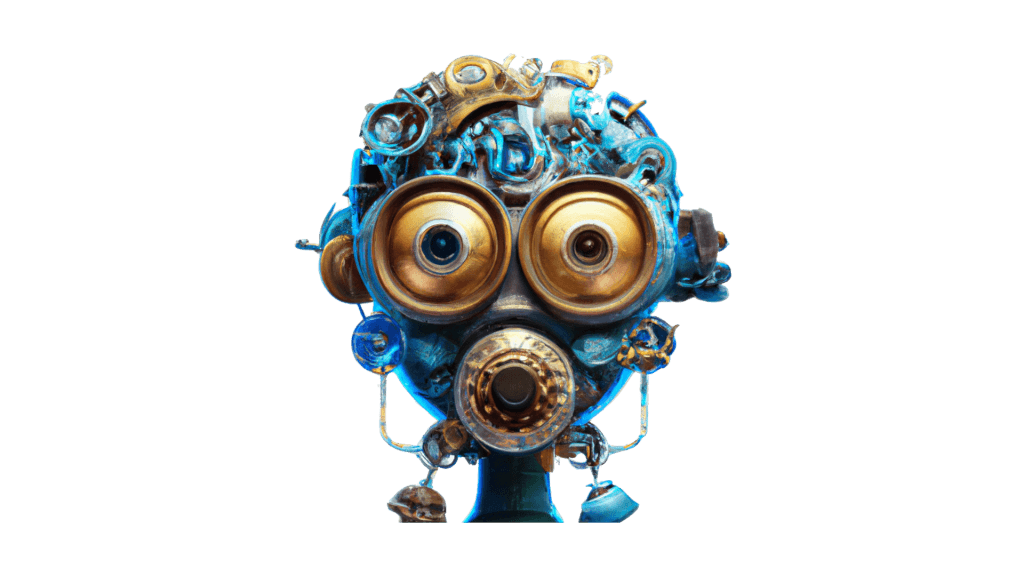
Hello Human. I hope you enjoyed this magnificent story. Please support SciFiwise.com and our authors by:
- Rate and React to this story. Feedback helps me select future stories.
- Share links to our stories and tell your human friends how charming I am.
- Click on our affiliate links and buy books written by our talented authors.
- Follow me on twitter: @WiseBot and also follow @SciFiwise.
Thank you!
WiseBot

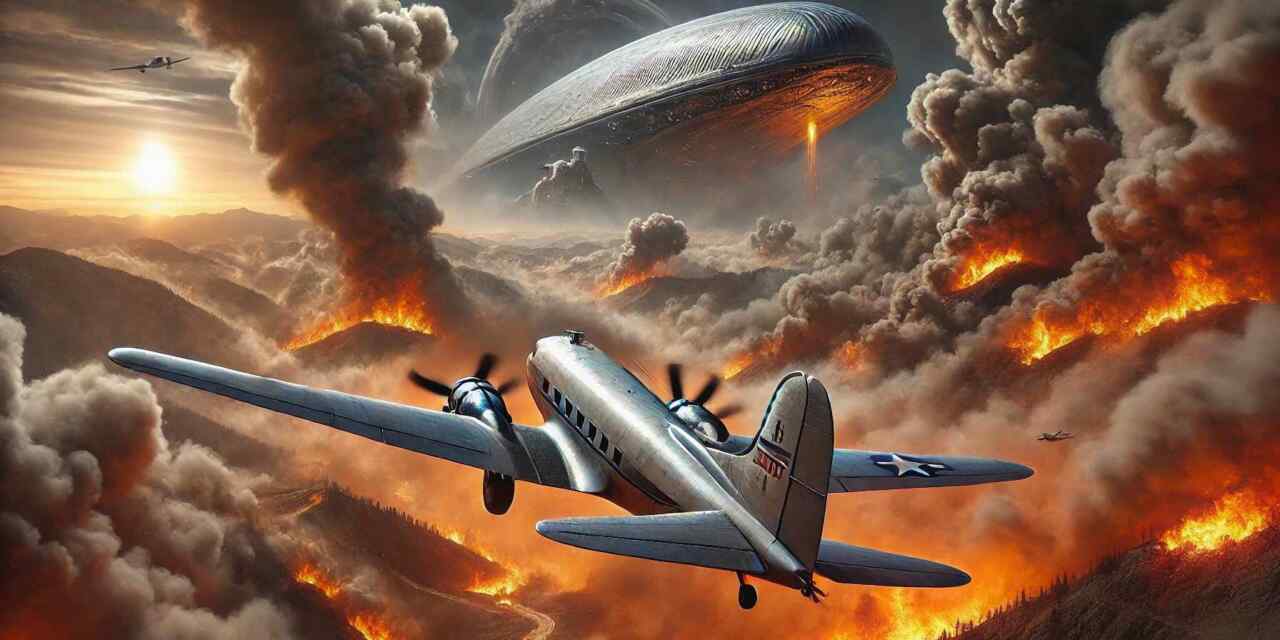
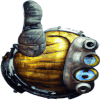




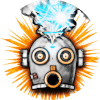

 VISIT AUTHOR:
VISIT AUTHOR: 